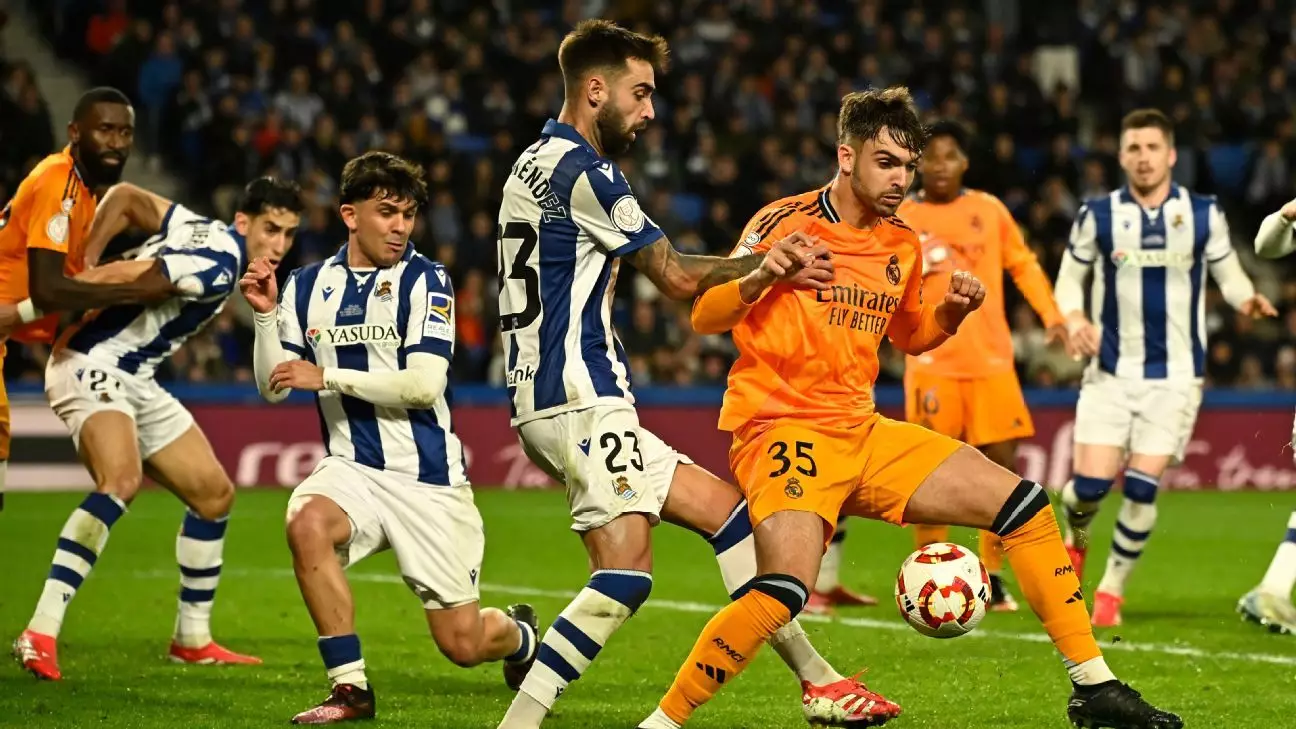The ongoing challenges of hate speech within sports were brought to the forefront during a recent Copa del Rey semifinal match between Real Madrid and Real Sociedad. The game, held at the Reale Arena, was temporarily halted amidst alarming chants directed at Real Madrid defender Raúl Asencio. The offensive remarks, which included threats of violence, served as an unsettling reminder of the not-so-distant past when intolerance would often rear its ugly head in public spaces, and in this case, it infiltrated the sporting arena.
Referee José María Sánchez Martínez responded commendably to the situation by activating Spain’s anti-hate protocol. This procedure is designed to address such incidents swiftly and decisively. When Madrid captain Vinícius Júnior alerted the match officials, the message displayed on the stadium’s big screens called for respect among fans and denounced xenophobia and racism. The wording was clear: “No to racist, xenophobic or intolerant chants. Support the team, respecting the opponent.” Yet, despite these efforts, one must question whether sufficient measures are in place to ensure the wellbeing of players and to foster an environment free from hatred.
The Broader Context of Raúl Asencio’s Situation
Simultaneously, tensions surrounding Asencio’s personal life only added to the complexity of the match. Recently, a court in the Canary Islands decided to continue investigating allegations related to Asencio’s involvement in distributing explicit content involving minors. This compounded pressure can lead to a toxic atmosphere that negatively influences the player’s performance on the field. Asencio was pulled from the game at halftime by Real Madrid’s coach Carlo Ancelotti, who cited both the disruptive chants and the player’s emotional state as factors in his decision to substitute Asencio with Lucas Vázquez.
The desire for positive change manifested through comments made by both captains after the match. Real Sociedad’s Mikel Oyarzabal denounced the verbal assaults, asserting that they are wholly unacceptable and that there are more appropriate ways to express disapproval. His counterpart, Imanol Alguacil, reiterated this sentiment, emphasizing the need for respect in all stadiums. Such responses are necessary; however, they must also translate into actions that effectively deter similar incidents in the future. Moving forward, clubs and sporting authorities must work together to foster a culture of intolerance against hate speech, promoting education and understanding among fans.
Looking Ahead: A Call for Unity and Sporting Integrity
The sporting world stands at a pivotal moment; it can either choose to engage in collective action against hatred or let these acts persist. As fans, players, and officials unite against intolerance, we must ensure that stadiums remain safe havens for passionate supporters, not arenas for hostility. The events at the Reale Arena demonstrate a crucial need for vigilance and proactive measures in football. As we move further into an era where the fight against hate must become even more pronounced, it’s imperative that sport leaders take urgent and robust steps against any behavior that undermines the integrity of the game.


Leave a Reply